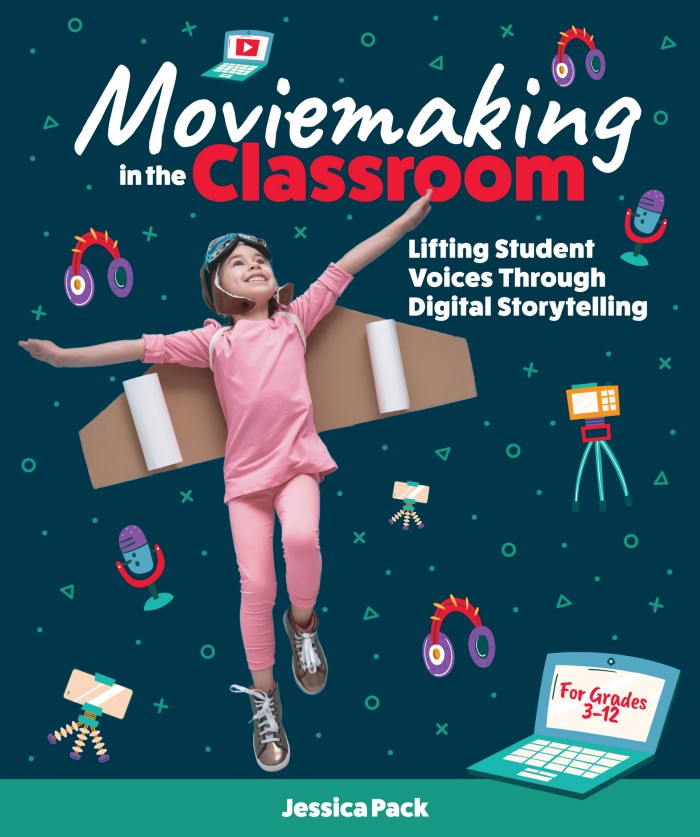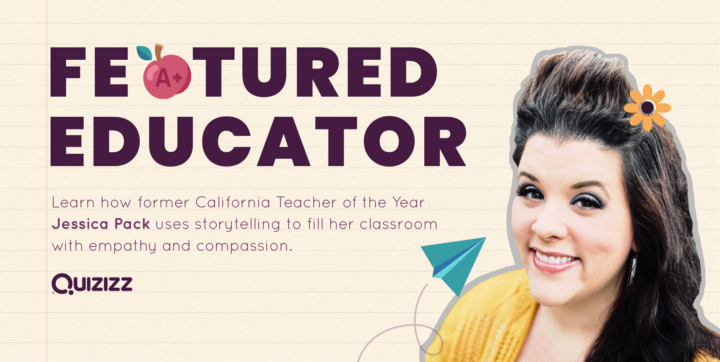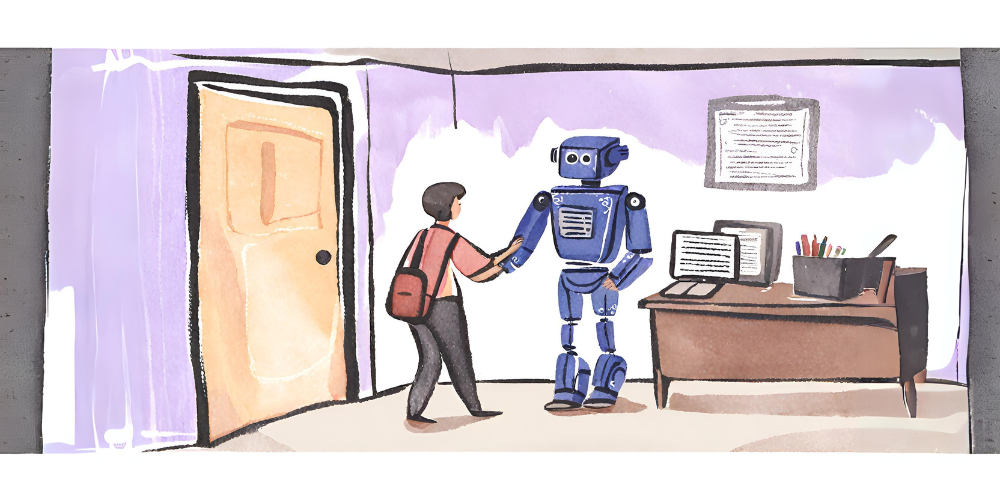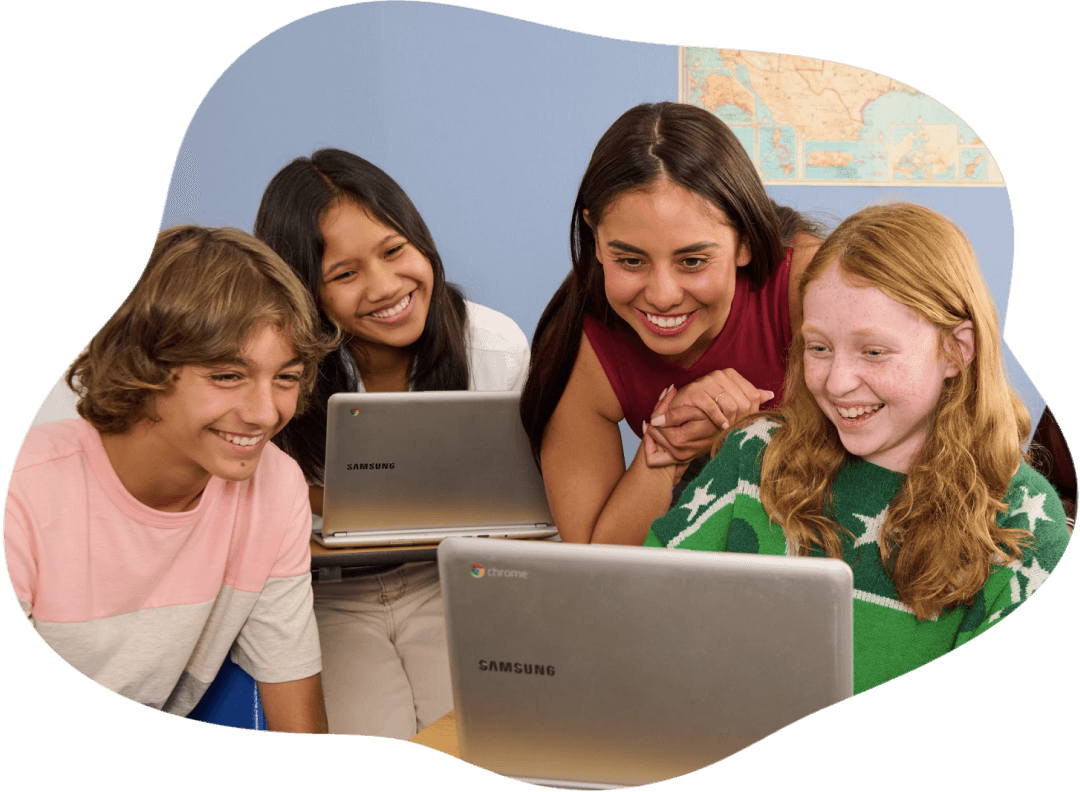As a middle school English Language Arts educator whose credentials include 17 years of experience and a 2014 California Teacher of the Year award, Jessica Pack is clearly a master of curriculum. Although self-proclaimed to be “super-charged” by the content throughout the start of her career, Jessica said that with experience, she realized what matters even more.
“The relationship factor has been something that I’ve worked on consciously over time,” she explained. “It’s the most important part of my day with kids. They really are the driving force of the classroom, and if they’re not ready or able to learn because of whatever baggage they’re bringing in the door with them, then we have to pause. That’s been a huge pedagogical shift in our entire profession, but I really see it this year.”
Add post-pandemic challenges on top of the already difficult period of middle school adolescence, and it’s easy to see why teachers like Jessica have a full plate. Thankfully, she’s someone who deeply understands her students’ perspective. While today, Jessica exudes a warm, bubbly, bright-eyed presence, her younger years weren’t always as pleasant, and she felt withdrawn while attending school.
“As a child myself,” Jessica explained, “I didn’t have a voice, and it was my mission to be invisible everyday. A lot of people think teachers were always these fantastic, studious children, but I was not a good student at all. I was a train wreck through the middle school years, and I had a lot of trauma that I really needed to work on and to have the opportunity to heal from. So for me, being a teacher is so important because I want to provide children the opportunities, the relationships, and the experiences that I just could never quite tap into.”
Using this rough start in school as a catalyst to become a caring and compassionate mentor for students, Jessica knew her career choice to become an ELA teacher was simple. Jessica talked with Quizizz a little more about herself as an educator, her classroom culture of positivity, and her new book, Moviemaking in the Classroom: Lifting Student Voices Through Digital Storytelling. Read on to learn more:

Are there certain teachers in your past who helped inspire you to become an educator?
One hundred percent, my own experiences really shaped my desire to be a teacher. I remember two of my own teachers who really stick out in my mind. My third grade teacher, she was the first to ever tell me I could get an A, and that was the first time that I ever saw an A on my report card.
My junior high English and Spanish teacher was probably within her rights to be completely frustrated with me, but she just met me with love — sometimes tough love — every day. The one thing I remember doing for one of her classes, because I was excellent at not doing work, was I wrote a short story about my cat. She took time to one-on-one conference with me and praised the story, and just made me feel like it was an event. That changed how I saw myself, because I think we need adults who believe in us, who value us, and that’s not always the experience kids get in school, so I’m passionate about that.
How did you begin to integrate storytelling and moviemaking into your English Language Arts curriculum?

If we had a pilot in my district over 17 years, you name it, I’ve done it — and I first discovered the concept of storytelling with our MacBook pilot. One of my students accidentally clicked on the iMovie icon in the middle of class and announced how cool it was, and although it completely derailed the lesson that day, I suddenly realized how into the idea of movies the kids were. It was a really magical, career-defining moment, and I thought, ‘How do I leverage that to meet the standards?’ So over the years, it’s just been about figuring out how we can take our learning and ‘story-fi’ it.
There’s actually a lot of really cool stuff that happens in your brain when you interact in a ‘storified’ environment, which is the selling point for me. Your brain starts manufacturing cortisol, dopamine, all kinds of great chemicals that tap into the formation of memories, your level of engagement, and actually, chemicals that spur empathy. So for me, with a language arts background, I thought, that sounds a lot like what books do.
I wanted to be able to pair that with the idea of novel studies and reading, and appreciating and consuming an author’s story, but then turn and author our own story to really showcase our understanding of content. That’s been a huge pivot in my instruction and my philosophy with kids.
There’s this idea that every kid has their own personal story, and you can tap into who they are as a person, who they want to be, what their struggles and triumphs are, and then pair that with things like writing, which isn’t a favorite activity for a lot of kids. You ask them to just write an essay, you get the groan, but if you ask them to write a movie script, that’s a different story. It’s really fantastic to have the opportunities to just help my kids figure out that they have a voice, and then give them the tools they need to amplify it and start creating that content that expresses their school experience and their lived experiences.
Besides your 2014 California Teacher of the Year award, what’s been another highlight of your career?
Having the opportunity to write my book was a very, very special, reflective time for me. It was an incredible chance to look back over 17 years and think of specific children, stories, and movies they created that really just exemplified some of the most magical and tragic and wonderful and exploratory moments in my entire picture of being a teacher.
One of the great things that happened in the course of writing my book was being able to reach back out to kids that I haven’t seen in a while, some in nearly a decade. I actually tracked down all of the students whose work appears in the book. So everytime there’s a QR code where you can scan and watch a movie, I got to go have coffee with those kiddos, (many who aren’t even kiddos anymore!)…It’s been really fun to connect with those kids as they’re becoming ‘real life people,’ many are adults now!
How have you utilized your administration’s purchase of a Quizizz School & District Plan in your classroom.
I primarily use Quizizz for the ‘Fast and Curious’ EduProtocols, which has to do with giving kids a set of questions cold, and then redoing them several times until they reach mastery. The whole concept of academic repetitions is a real win with Quizizz, especially for kids who aren’t successful straight out the gate. That idea of repeated attempts at learning is just hugely transformative to the culture of the classroom.
I use a lot of different gamified tools, and Quizizz is a favorite for sure. The kids love the user experience. For me, it doesn’t even take that long to make, but the payoff I get for just one Quizizz is huge for an entire week.
As a class, we have this attitude that you don’t have to be perfect, you just have to do a little better than you did the time before. On Monday, the class is full of productive struggle; on Tuesday it’s a little better; and so on with Wednesday and Thursday; and by Friday, they’re experts, they’re golden, they feel good about themselves, and they’re successful. Then we take the content they were learning in that gamified space, and apply it in other ways for the rest of the period.
Another thing is, post-pandemic, kids’ self-esteem took a huge hit. They spent a lot of time not being actively engaged, so it messed with their sense of self-efficacy. Even now, teachers have to have this classroom culture where it’s like, ‘positive positive positive, you can do this, I believe in you.’ That’s why the redemptive nature of Quizizz and these types of tools is important.
You inspired so many teachers, so likewise, who are some educators and EduCreators who inspire you?
- Amanda Sandoval offers super creative and inspiring lesson designs.
- Tim Needles promotes strong community leadership and advocacy.
- Jon Corippo provides exemplary professional development resources.
- Jorge Valenzuela shares a wealth of vital information relevant to educators.
Jessica is presenting at three different conference sessions during ISTE Live ’22, June 26–29 in New Orleans. Learn more below about her sessions, check out her website, and/or scoop up a copy of her new book, Moviemaking in the Classroom: Lifting Student Voices Through Digital Storytelling:
















